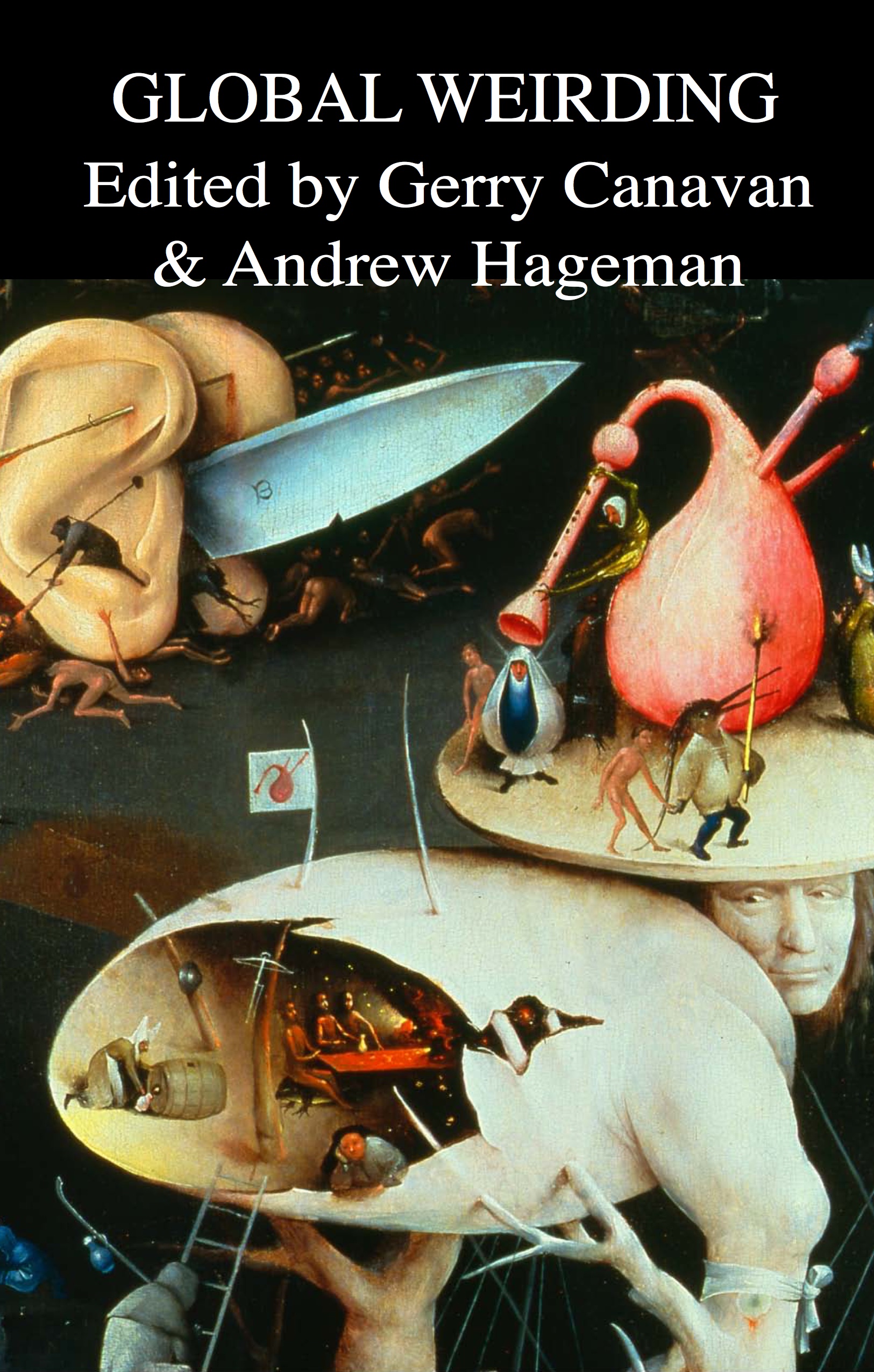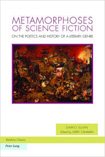Infinite Summer #3: No Matter How Smart You Thought You Were, You Are Actually Way Less Smart Than That
 (This one turned out a little longer than expected.)
(This one turned out a little longer than expected.)
There have been two references so far in Infinite Jest to “the M.I.T. language riots of B.S. 1997,” a reference so slight it hardly seems worth the trouble of tracking down. The first we find in James O. Incandenza’s massive filmography on pg. 987n24, linked from pg. 64:
Union of Theoretical Grammarians in Cambridge. B.S. Meniscus Films, Ltd. Documentary cast; 35 mm.;26 minutes; color; silent with heavy use of computerized distortion in facial close-ups. Documentary and closed-caption interviews with participants in the public Steven Pinker-Avril M. Incandenza debate on the political implications of prescriptive grammar during the infamous Militant Grammarians of Massachusetts convention credited with helping incite the M.I.T. language riots of B.S. 1997.
Forty footnotes later, on 996n60, we get this about “the near-new M.I.T. student union” (184):
Replacing the old neo-Georgian J. A. Stratton Student Center, right off Mass. Ave. and gutted with C4 during the so-called M.I.T. Language Riots of twelve years past.
Glossing over the difference in capitalization, taken together these two footnotes place the “present” of the novel as exactly now: 2009.
We don’t know much about what has happened in the intervening decade, and as was discussed in the comments to the last post I don’t think Infinite Jest is productively read as predictive fiction. (Instead it should be understood as always twenty minutes into the future.) We get, for instance, a quiet reference to the Kemp administration on pg. 177, a moderately reasonable prognostication for DFW to make in 1996 (though Jack Kemp was widely considered a failure as Dole’s running mate at the time)—but it’s paired with a no-chance-in-hell Limbaugh administration that is clearly satiric. (Both references are somewhat suspect, in any event, as they originate in-dialogue from a character at the Ennet House who euphemistically admits they have “some trouble recalling certain intervals” during these periods. So maybe it’s a joke within a joke.) We know Vermont has become the Great Concavity—where feral hamsters rule unchecked!—and that videophones have come and gone, and that broadcast television has ended in favor of TPs, apparently some sort of on-demand service not unlike Netflix.
But we don’t know much, because these sorts of predictions just aren’t the point.
So enough of that—back to the M.I.T. language riots. This is an allusion to Don DeLillo’s Ratner’s Star (1976), a novel which shares some affinities with Infinite Jest, including a boy-genius plotline, multivocal narrative, deep suspicion about the reliability of both personal subjectivity and bureaucratic institutions, and intense theoretical interest in the inner workings of language. The riots are covered in their entirely on pages 31-33 of Ratner’s Star in a short bit of dialogue from J. Graham Hummer, “widely known as the instigator of the MIT language riots”:
“Tell us about the MIT business,” Mimsy said. “I’ve never heard the details.”
“There are no details.”
“Did people really throw stones at each other and overturn cars and the like? I mean was there actual killing in the streets?”
“I was simply trying to assert that what there is in common between a particular fact and the sentence that asserts this fact can itself be put into a sentence.”
“And this led to rioting?”
 This weird, obscure moment, which could be slotted into Infinite Jest itself without a tremendous amount of revision, introduces the problem of cognitive reflexivity that structures a lot of both Ratner’s Star and IJ. It centers around what is in essence, the Gödel paradox, the problematic fact that statements-about-statements are themselves statements, that there is no self-consistent exterior vantage point from which we can look objectively at our own subjective experiences of the world—that as soon as we attempt to think or speak about the way we think and speak we become hopelessly lost in paradox, in indecidability, and in confusing and shadowy incompleteness. And I hope it isn’t too much of a stretch to assert that this is exactly the problem we face when we confront addict subjectivity:
This weird, obscure moment, which could be slotted into Infinite Jest itself without a tremendous amount of revision, introduces the problem of cognitive reflexivity that structures a lot of both Ratner’s Star and IJ. It centers around what is in essence, the Gödel paradox, the problematic fact that statements-about-statements are themselves statements, that there is no self-consistent exterior vantage point from which we can look objectively at our own subjective experiences of the world—that as soon as we attempt to think or speak about the way we think and speak we become hopelessly lost in paradox, in indecidability, and in confusing and shadowy incompleteness. And I hope it isn’t too much of a stretch to assert that this is exactly the problem we face when we confront addict subjectivity:
That most Substance-addiction people are also addicted to thinking, meaning they have a compulsive and unhealthy relationship with their own thinking. That the cute Boston AA term for addictive-type thinking is Analysis-Paralysis.
…That 99% of compulsive thinkers’ thinking is about themselves; that 99% of this self-directed thinking consists of imagining and then getting ready for things that are going to happen to them; and then, weirdly, that if they stop to think about it, that 100% of the things they spend 99% of their time and energy imagining and trying to prepare for all the contingencies and consequence of are never good. That this connects interestingly with the early-sobriety urge to pray for the literal loss of one’s mind. In short that 99% of the head’s thinking activity consists of trying to scare the everliving shit out of oneself… (203-204)
The strange compulsion towards endlessly looping cognitive reflexivity—thinking about thinking about thinking about thinking…—leads in the end to that terrible desire that is central to addiction, the desire for one’s consciousness to be obliterated altogether:
…a little-mentioned paradox of Substance addiction is: that once you are sufficiently enslaved by a Sustance to need to quit the substance in order to save your life, the enslaving Substance has become so deeply important to you that you will all but lose your mind when it is taken away from you. Or that sometime after your Substance has just been taken away from you in order to save your life, as you hunker down for required A.M. and P.M. prayers, you will find yourself beginning to pray to be allowed literally to lose your mind, to be able to wrap your mind in an old newspaper or something and leave it in an alley to shift for itself, without you. (201)
This is, that is, the desire for suicide that haunts so much of Infinite Jest, that in the wake of 9/13/08 threatens to consume the book altogether. Reading The Bell Jar is like this; knowing that Sylvia Plath committed suicide a month after its publication destroys our ability to believe its assertions of an apparently happy ending for its Sylvia-stand-in, Esther. Knowing what happened to DFW—what he did to himself—deeply unsettles our ability to believe “[t]hat no single, individual moment is in and of itself unendurable” (204), which seems now, in retrospect, less like truth, and more like the prayer of a person who hopes they might someday believe it.










Dude. He endured for over two decades. Considering that he probably had the worst kind of depression one can have, living through it for over two decades is proof enough of the endurability of thousands upon thousands of moments. Wallace was beaten by one moment, after having defeated thousands upon thousands of moments. Speak for your own unsettling, pessimist. It might not be a perfect truth, but futilely expecting perfection from truths is your problem. Not ours. Diminishing the truth of a man’s legacy because he retired from the sport of life with a record that may as well be 400,000 wins and 1 loss? That sucks, man. Proving to the blogosphere you have a nuanced mind that can tease out melodramatic half-brained implications, is not a good excuse.
Paul Chandler
November 16, 2010 at 5:07 pm
Whoa whoa whoa. Productive discussions come from idea exchange, not personal affronts about what one is trying to prove. Take it down a notch Paul Chandler (but just one notch), and I think we’ll all get more out of this. Very passionately stated, though.
As to the original post, I agree that Wallace’s suicide absolutely colors the impression the text has on the reader. I first read IJ post Wallace suicide, and it added a certain tinge to my reading. I don’t know if that one aspect of it “threatens to consume the book altogether” (I think the book covers too many bases for any one thing to consume it), but still, interesting point, and one that I found to be generally true.
skeletor404
May 21, 2012 at 1:09 am
I entirely agree that it is missing the point I take ij as some sort of prediction of the future. I think dfw uses the future as a way of hyperbolizing certain attributes of the American culture he knew. He was so attuned to this culture however he hit a few things spot on. His suicide I think effects the morose of the book little. His obvious understanding of addiction and depression which translate into the depth and realness of his characters had to come from personall experience. Thats what makes them real. Depressed drug addicts often kill themselves. Dfw portrait of AA is perhaps the most accurate account of the functional good of that institution in fiction. Did he in life understand what Don Gately learned and knew? No. Does this deminnish that character or his subtle nuanced depiction of AA. No.
As for the reflexive trap of viewing one’s own subjective vantage and life, this is perhaps what the infinite jest film showed with the use of highly developed lenses and why it enslaved its viewer. Perhaps the content of that film ie pgoat as the appologetic mother figure is less important than the way in which she is captures and presented.
P.S. I wrote this on a phone and I know the militant grammarians will hunt me down should they ever read it.
Pmoat
May 14, 2013 at 10:03 pm
[…] mother (cough Avril Incandenza cough) had trained me to use “one” when speaking: “One would think . . . […]
A Tale Told by An Idiot (The Usual) | Maggie's Farm
November 19, 2015 at 6:53 pm
This is the first indication I personally have had that someone understands IJ.
Johnny Gentle just won the Presidency.
Infinite Jest is obviously a mobile app.
Militant (eg Prescriptive) Grammar isn’t just about reflexive thinking though.
It’s about structuring sentences with embedded commands and fantasies so that the conscious mind lets them in smoothly.
Rather than saying “take off your clothes” the smooth seducer says “you’ll never take off your clothes, will you.”
This is Militant Grammar and it forms the DIALOGUE that is spoken by Joelle in the film IJ. Without it the “app” wouldn’t work.
A film consists of several synaesthetic components: Jim was a military trained expert in “optics” and Joelle was the PGOAT after all. You have YouShitYous in every home and you just gotta get your film up to InterLace for distro. But what keeps them glued to the chair?
Militant grammar.
I feel that you might want to read this comment again and again and then write a new post about and extending some of these ideas. Did you know you are the very best IJ blogger on earth? Once you start blogging about the new President Gentle, something important may happen.
Also, Erdedy created the Gentle campaign perhaps unwittingly while he was at Viney&Veals. Imagine how Erdedy felt on his Election Day. That is the Feeling I want to share with you.
(The last paragraph was a quick demo of Militant Grammar for you ;)
THANKS FOR READING
HAVE A NICE DAY
Sri Kumar
November 12, 2016 at 1:43 pm
Real quick – IJ Is a youshityou app, which is not a mobile app but rather a Samsung VR-chair creation which includes full body haptics – wanted to clarify. But Jim is an “app developer” who has dabbled in NLP training and his son Orin is a practitioner (what with his Subjects etc).
Sri
November 12, 2016 at 1:52 pm
This future youshityou platform is so immersive that you don’t have to get up to take a shit, just stay in there bouncing along to mr bouncety bounce.
The cocoons in the Matrix.
Thanks for indulging this brainstorm XD
SK
November 12, 2016 at 1:59 pm
The book IJ by DFW is an alternate history sci fi novel designed to be accepted by mainstream readers like Vonnegut once was. It’s a warning. It predicted ONAN rising from the ashes of NAFTA, and our new President just might decide to do that. I’m afraid the Concavity may be the result of a nuclear explosion, or maybe a reactor meltdown. How DFW created any of this must be investigated. How much DMZ did he have to do to see this clearly into this crazy Trump future back when he was writing this?
Anyway, if AOL invented Netflix and absorbed commerce a la FB way back in 1992, it’d basically be InterLace. Facebook is quite interlaceish, and has even acquired Oculus! Wowowowow
SK
November 12, 2016 at 2:05 pm
“what there is in common between a particular fact and the sentence that asserts this fact can itself be put into a sentence.” — I think this has much more in common with the Wittgenstein of the Tractatus than it does with Gödel. It amounts to a straightforward denial of WIttgenstein’s central claim in the Tractatus that the relationship between language and reality can only be shown, not itself literally stated in language (for which reason Wittgenstein acknowledges that the Tractatus, which purports to explain that relationship, itself has to be considered meaningless, a ladder to be thrown away once you’ve climbed it.)
And I’d respectfully suggest that the following is not an accurate gloss of the meaning of Gödel’s incompleteness theorems: “the problematic fact that statements-about-statements are themselves statements, that there is no self-consistent exterior vantage point from which we can look objectively at our own subjective experiences of the world—that as soon as we attempt to think or speak about the way we think and speak we become hopelessly lost in paradox, in indecidability, and in confusing and shadowy incompleteness”
John Bishop
November 16, 2021 at 7:58 am